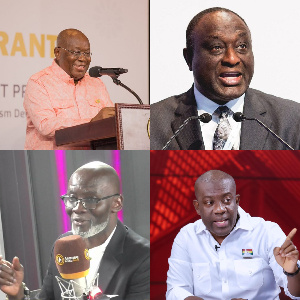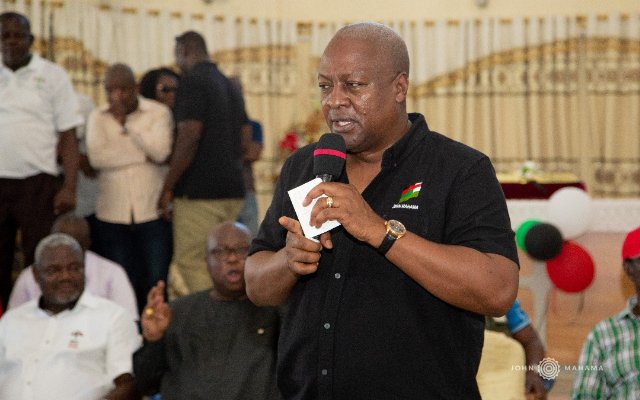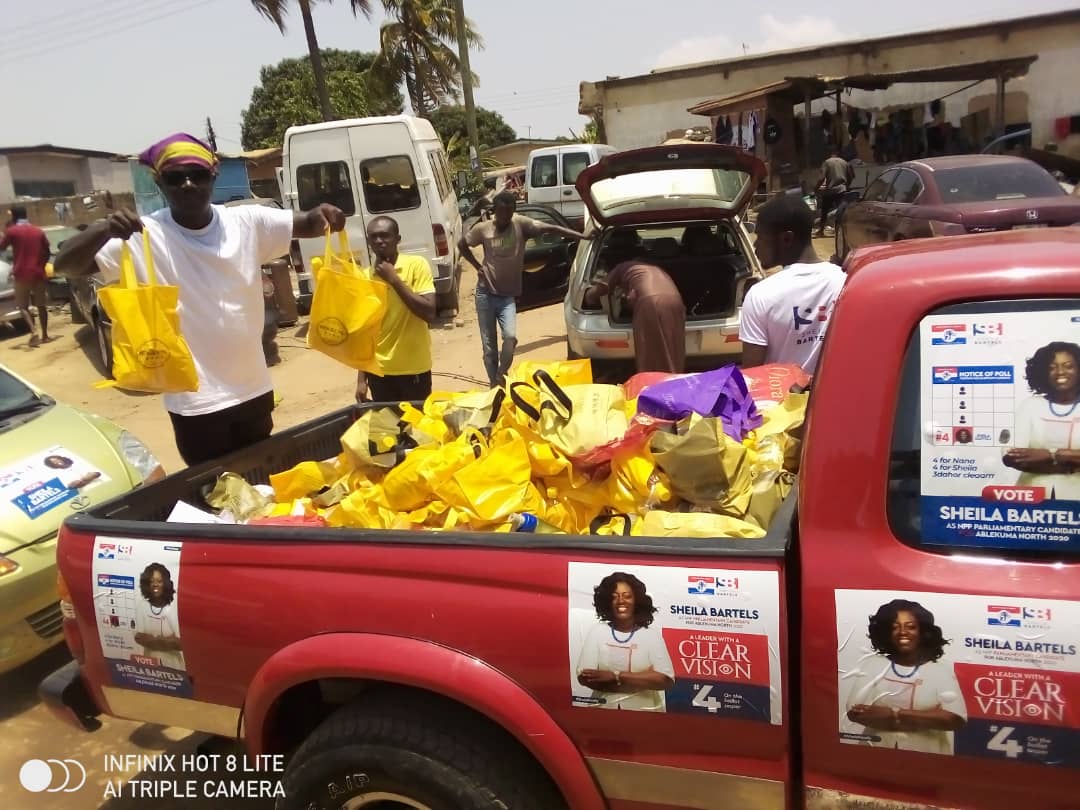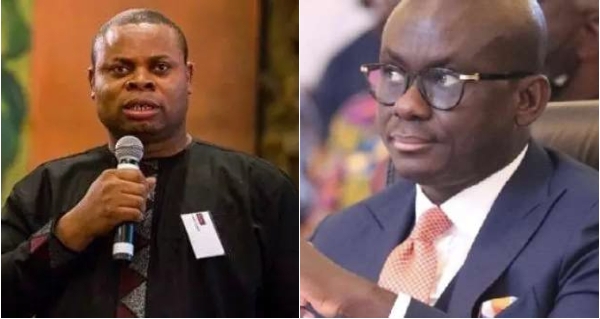5 government officials who have vehemently defended IMF bailout decision

Government rejects IMF bailout calls
Government makes U-turn to IMF
Government officials defend decision to seek IMF bailout
For a country that has been under an IMF financial support programme for 16 times, an addition to make it 17 should not have come as a surprise.
However, the decision by the current Nana Addo Dankwa Akufo-Addo government to lead Ghana into a place quite too familiar within the economic management history of the country has elicited an unusual public rancour.
For some critics of the government who had made earlier calls for the government to go into an IMF programme, their wrath has been provoked mainly by the government’s own defense against its earlier position.
The government, some few weeks ago, ruled out the possibility of an IMF bailout, describing it as detrimental in simple terms to the country.
However, after an eventual decision to return to the International Monetary Fund for support, members of the government and the ruling New Patriotic Party have sought to justify the one-eighty decision.
A list containing names of some cabinet ministers scheduled by the government of Ghana to visit some 26 media houses to address issues regarding Ghana’s return to IMF followed on the Monday after the President, Nana Addo Dankwa Akufo-Addo’s directive to the Finance Minister.
The President had ordered Ken Ofori-Atta to begin engagements with officials of the IMF on July 1, 2022.
Some of the persons who have since spoken in defense of the government’s recent decision have been listed below:
President Nana Addo Dankwa Akufo-Addo
The ultimate decision to return to the IMF was made by President Nana Addo Dankwa Akufo-Addo, who explicitly instructed the Minister for Finance, Ken Ofori-Atta to commence engagements with the Fund.
The president, speaking for the first time about the decision, justified that an IMF programme had become necessary as a result of current global economic challenges.
According to the president, the programme will help stabilize Ghana’s economy and in effect lessen the hardships Ghanaians are going through.
“I am confident that with determination, hard work, unity, and the proverbial Ghanaian sense of enterprise, we will succeed, we will make it and indeed this too shall pass.
“Economies have been plunged into recession, businesses have collapsed, lives and livelihoods have been disrupted, food and fuel prices have escalated dramatically as global and domestic inflation mount.
“In our case, we have decided to see the collaboration with the International Monetary Fund to repair in the short run, our public finances, which have taken a severe hit in very recent times,” the president said during the swearing-in of some new Ambassadors and High Commissioners at the Jubilee House.
Gabby Asare Otchere-Darko
A leading member of the ruling NPP who is tagged as wielding heavy power within the corridors of the current government, Gabby Otchere-Darko, unofficially announced Ghana’s 17th IMF programme before the ministry of information’s release.
Responding to some public reactions following the official announcement, Mr. Otchere-Darko parried suggestions of negative political implications for the party and the government.
According to him, it is rather ill-informed on the part of members of the opposition National Democratic Congress (NDC) to assert that the arrangement will affect the ruling party’s fortunes in the next general elections.
He noted in a tweet that the IMF program will eventually help government to focus on policies that will impact the economy positively.
“If @JDMahama & the NDC are happy because NPP going to the IMF now is what will deliver NDC victory in Dec 2024 then they better think again. It rather takes pressure off the Akufo-Addo Govt to focus on things that will impact positively on the economy over the next 15 months,” he wrote in a tweet.
Kojo Oppong Nkrumah
The government’s release on July 1, 2022, announcing to Ghanaian’s the decision to return to the IMF was under the seal of the Minister for Information, Kojo Oppong Nkrumah.
In a recent media engagement, Mr. Oppong Nkrumah described the release as one of those that has the hands of a minister shaking when it comes to appending a signature to it.
That notwithstanding, Mr Oppong Nkrumah has been at the forefront in defending the government’s decision.
In his first official engagement with the media after the announcement, Mr. Oppong Nkrumah cited three main reasons to justify running to the IMF.
According to him, “Covid-19 is the primary reason. It was a global challenge…the twin crisis [also affected us] and its a is a well-known problem.”
On the second reason, the minister said Ghana’s economy, despite performing relatively better than other economies, has suffered ‘critical distortions’ which needed fixing.
He further cited Ghana’s credit score as the third reason saying it has become necessary for government to pursue an IMF programme after some prudent domestic strategies failed to improve the country’s credit score by rating agencies.
“One of the major things that have affected us is our downgrade [by international rating agencies], therefore our inability to get access to the international market,” he said.
John Alan Kojo Kyerematen
Trade and Industry Minister, Alan Kojo Kyerematen on his part has linked the IMF support to the need for Ghana to attain fiscal discipline.
According to him, while the programme will not necessarily lead to prosperity for citizens, it will help streamline government’s activities.
“The IMF itself cannot create prosperity for us, however, it comes in purely for stabilisation, balance of payment and liquidity support,” Mr. Alan Kyerematen said at a meeting with businessmen and captains of industry in Accra.
According to Mr Kyerematen, the government will insist on terms and conditions which will be in the best interest of citizens during negotiations for the programme.
Speaking on the July 7, 2022 edition of Metro TV’s Good Evening Ghana, Mr Kyerematen said the IMF programme being sought by the government of the day ought not to be seen as a negative policy choice.
“I believe that we need to have this conversation by acknowledging a few fundamental facts. First, it appears currently, our country is confronted with economic challenges which have been primarily occasioned and driven by the combined effect of the Covid-19 pandemic as well as the Russia-Ukraine conflict. So this is a fact that we cannot run away from.
“Secondly, going to the IMF ought not to be seen as a negative policy choice. I believe that the negativity associated with going to the IMF for support has been driven by the rather rancorous political discourse over the years. It doesn’t matter whether it is the NDC or the NPP that is leading that discourse.
“I believe that there are certain fundamental issues that need to be discussed dispassionately as a united country driven by one national objective rather than us politicizing such critical issues,” he said.
Buaben Asamoah
After some critics called on the government to issue an apology to Ghanaians over the decision to make a U-turn to the IMF, the Director of Communications for NPP, Yaw Buaben Asamoa disagreed with the need for such an apology.
According to him, while the government has been forced to eat its words, it doesn’t justify the need for an apology.
“It is true that we are being forced to eat our words in public at this point, but there is no shame in that. It would be shameless to admit that the government decided to go to the IMF because our country’s economy has hit a stumbling block,” he said.
Mr. Buaben Asamoa went on to say that the circumstances surrounding the government’s decision to go to the IMF are completely different and not as bizarre as when the previous government’s incompetence drove it straight to the IMF.
“I must state that the conditions are completely different from before, he added. In our case, a global crisis is impeding production, supply, and global trade in general. I don’t see how the current can be blamed if the situation is beyond our control. The decision to engage with the IMF again is our best bet,” he wrote in a statement.
The NPP Communications Director concluded his statement by saying that the opposition, National Democratic Congress (NDC), is attempting to divert Ghanaians’ attention away from the need for an IMF bailout and toward statements made years ago criticizing the same bailout.
“On social media, the only thing you see is the NDC going back to retweet and hashtag specific posts from senior NPP members saying an IMF bailout was not the best option. The fact remains that the country requires the bailout, and this government will borrow and use the funds wisely so as not to negatively impact Ghanaians’ lives. The NDC, by returning our words to us, is unnecessary,” he concluded.
Source: www.ghanaweb.com






